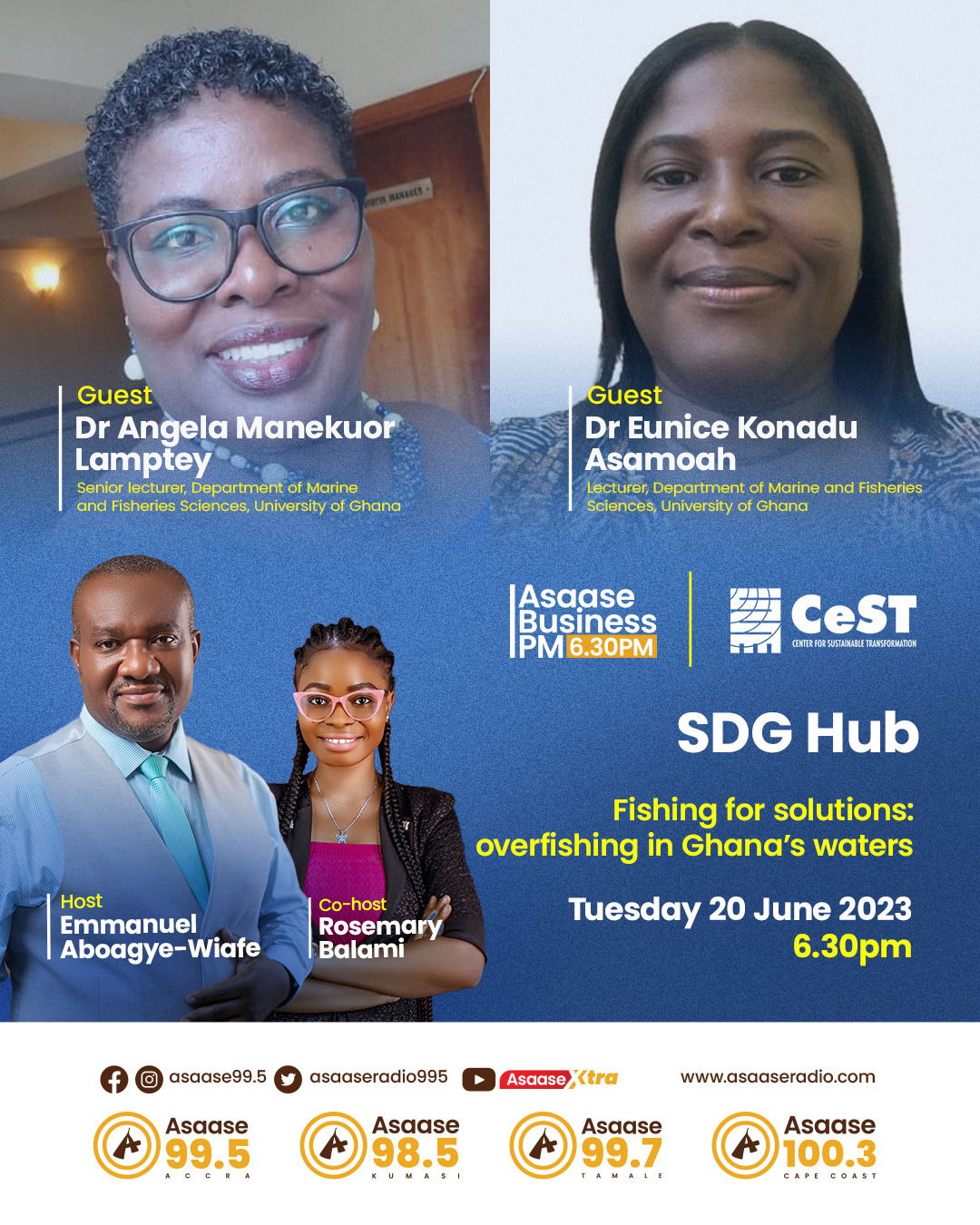
Globally, 11–26 million tonnes of fish each year are lost to illegal, unreported, and unregulated (IUU) fishing activities. This loss is estimated to have an economic value of USD$10–23 billion.
Fishing, an important economic sector in Ghana, is on the brink of collapsing due to illegal and overfishing for the past years. This however was not the situation centuries back. An estimated 10% of the country's population, which represents about 2.6 million people, are engaged in various aspects of the fishing industry.
Overfishing remains a pressing concern for Ghana's fishing industry, posing significant threats to both the environment and the livelihoods of coastal communities like Apam, Cape Coast, and Elmina.
The country has one of the highest rates of dependence on fish for nutrition in Africa, with fish providing 60 percent of animal protein intake and an estimated annual consumption of 25 kg per capita. This shows a decrease from the 40 kg per capita consumption recorded in the 1970s because of diminishing fish harvests and an insufficient supply of affordable fish.
“Ghana is a fish consuming country. We get a lot from fish. Now with overfishing, we’re getting less and less of the fish and so we have to make up and that's where the imports come in. And the main thing is that we export our valuable fishes so that we are able to import the small pelagics, the peoples fish…” said Dr. Eunice Konadu Asamoah, Lecturer, department of fisheries and marine sciences, University of Ghana, while on the SDG Hub on Asaase 99.5 earlier this week.
As many as 2.2 million people in Ghana depend on the fisheries sector for livelihood, including some 135,000 fishers in the marine sector of which 92 percent are artisanal fishers. In a discussion with Dr. Angela Manuekor Lamptey, Senior lecturer, Department of Fisheries and Marine Science, University of Ghana on the SDG hub, she revealed how the fishermen themselves play a major role in the shortage of fish and diversities in the ocean. “The good thing is that the fishermen themselves know why they are not getting the diversity. Yes, it’s as a result of illegal fishing. Of course, when it comes to overfishing, it’s an aspect of illegal fishing. So, they know very well,” she said. She added that most fishermen use light, dynamite, explosives, and small meshed nets to overfish. This eventually empties the ocean leaving no fish.
“I mean if you go to sea and you are fishing with light, you’re fishing with explosives, with dynamite, you’re fishing with small meshed nets. Some of them are as small as mosquito nets. You go to sea with a monofilament net which is not allowed in the ocean. What do you expect? You catch more than you are supposed to catch, eventually the resources will get depleted,”
Locals in fishing communities mostly Apam, Elmina, and Cape Coast among others often blame the shortage of fish caused by overfishing by large industrial trawlers which are mostly owned by Chinese companies.
Dr. Lamptey, on the issue of IUU (Illegal, unreported, and unregulated) fishing by large industrial trawlers emphasized that IUU is a global problem and most especially Europeans and Asians engage in this form of fishing as compared to Africans.
“Overfishing is a subset of IUU fishing. so, it is global by nature. You realize that European vessels are even the worst perpetrators of IUU fishing or illegal fishing followed by Asians and some Africans. Of course, Ghana is not an exception but I have to tell you, you know emphatically that our vessels that are involved in illegal fishing are at the minimum. Most of these industrial vessels are not even owned by Ghanaians.”
The practice of illegal transshipment of fish at sea (known as Saiko) is also a major cause of fish shortage, said Dr. Lamptey. According to her, “When they catch the bycatch and they want to discard them, these artisanals go near the vessels and then take them. We call it transshipment. So when you take them you are encouraging them to even take more bycatch then you also get your catch. And what they use to justify the transshipment is that, when they go, they don't get the fish.”
In 2017, according to research by the Environmental Justice Foundation (EJF), it was made known that Saiko took “100,000 tons of fish from Ghanaian waters, costing the country millions of dollars in revenue and threatening food security and jobs.”Coastal communities today are on the brink of losing livelihood as a result of these activities by these huge companies.
Dr. Eunice during the discussion also emphasized on the need for illegal and overfishing to be checked before species and stocks collapse which will affect the economic situation of the country as a result of importation of sardinella, mackerel among others.
“If it's not checked, our species, or our stocks are going to collapse, our sardinella. Sardinella now you hardly find them. The mackerel, what we call salmon, you hardly find. Most of what you find on the market are imported. So, if it goes unchecked, we are going to lose all these fish. If we don’t put a stop to overfishing, we will be going to lose most of these stocks, and what we have to do is to import and so it's going to be a burden on the government.”